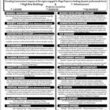Tractors are everywhere, with large machines used on farms, smaller versions on residential properties, machines used on construction sites, and in the transportation industry.
In the US, hundreds of thousands are sold annually as the primary equipment for moving oversize objects or materials, planting, or plowing.
Legally, there’s no requirement to insure tractors; however, lenders will expect insurance for the loan’s life. Find tips on how to get tractor insurance by visiting https://www.askmoney.com/insurance/how-get-insurance-your-tractor.
That coverage stops once the loan term balance is satisfied, leaving the machine unprotected.
In the same vein, you have coverage for a household, car, and your health, so it will be important to obtain a plan for this machine to avoid major costs if you experience an incident or accident resulting in property damage or injuries.

The Fundamentals of Tractor Insurance
Tractor insurance protects farmers, in particular, against monetary loss if there’s an incident or accident resulting in loss.
It can be compared to a commercial vehicle type of coverage fitting a farmer’s particular needs since the tractor is a primary tool for their livelihood. Click here to learn if you need tractor insurance. The coverage protects the machine from a range of risks, such as:
- Liability to a third party (property damage or bodily injury)
- Theft
- Legal expenses
- Accidental damages
- Natural disasters
- Driver/passenger
- Fire
- Attachment/implements
As a rule, all tractor owners or those who operate the equipment should get insurance for what is considered an essential tool for the farming trade. The machines are expensive to repair and costly to replace if stolen or damaged.
The coverage is further beneficial for third-party bodily injury or if you become injured in an incident or accident. Insurance offers financial protection against liabilities and risk in a timely fashion, allowing minimal financial effects from unforeseen events; essentially, it protects you from risks you don’t expect.
Like Us on Facebook!
Here are groups of individuals who should seek tractor insurance in the general agriculture industry.
Subscribe Us on YouTube!
- Instructors in the agricultural dynamic use tractors as tools for teaching farming practices.
- Researchers incorporate tractors to conduct agricultural trials and experiments in the field.
- Cooperatives who use tractors they own for use by agricultural members.
- Dealers who lease, rent, or sell agricultural machinery to farmers and others in the farming industry.
- Contractors who use agricultural equipment for tilling, plowing, harvesting, and planting for the farming sector.
- Ranchers who use the equipment to manage their pastures and livestock.
- Farmers and others in the agriculture industry who rely on the machinery for tilling, planting, and harvesting on their land.
Types of Tractor Insurance
The type of tractor you own, and its purpose will determine the type of insurance you carry. Here are some primary types of tractor insurance to consider.
Liability coverage
Liability insurance provides coverage for third parties if an incident or accident results in bodily injury or property damage. The protection can cover legal costs, medical expenses, judgments or settlements, and wage loss.
Comprehensive coverage
Comprehensive insurance provides coverage related to perils that can include natural disasters, such as hailstorms, vandalism, theft, and fire, all of which can damage machinery.
Collision coverage
Collision insurance protects the equipment when it is damaged in a collision with an object such as a structure, tree, or vehicle.
Personal injury coverage
Personal injury insurance will reimburse you for the covered damages if you are injured in an incident or accident while operating the tractor. The protection can include wage loss, medical expenses, and other costs stemming from the accident.
Uninsured motorist coverage

When an uninsured or underinsured individual operates a tractor and is involved in an incident that results in damage, the uninsured motorist insurance will cover the injuries or damages incurred.
When deciding which type of tractor insurance is best for your equipment, assessing the risk you’re exposed to in your day-to-day activities is essential. For instance, if there’s a greater risk for accidents and potential damage or injury to third parties. This would increase the need for liability coverage.
If you take a risk by hiring uninsured or underinsured staff, uninsured motorist insurance is critical in case there’s an incident that results in damage.
For those with several pieces of equipment, it’s wise to consider one plan covering the entire fleet instead of separate policies for various tractors.
Final Thought
Tractor insurance isn’t mandatory if the machine is restricted to personal property. However, the laws do require tractor owners to obtain liability coverage if the equipment is operated on public roadways. Coverage is also necessary when financing with a bank loan or other lender until the tractor is paid in full.
Some states require farmers to carry liability insurance if they haul hazardous materials on the roadways. If you’re uncertain whether you need tractor insurance, contact your state’s DMV—Department of Motor Vehicles—to learn the laws for tractor coverage.
Even if the law doesn’t require it, it’s wise to protect yourself in case an unforeseen event causes damage or injuries.



















